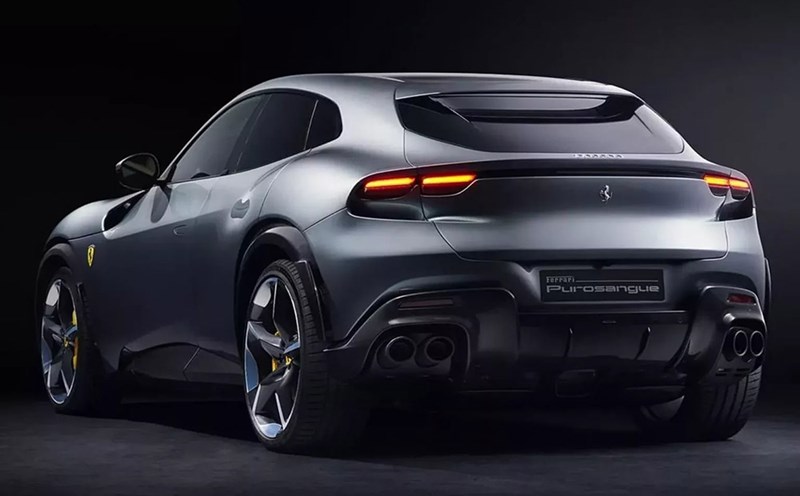Ferrari has just attracted attention when launching the F80 supercar. However, instead of using the legendary V12 engine, the company chose a twin-turbocharged V6 engine.
This is a surprising decision by Ferrari, especially when this model is expected to continue using the 6.5-liter naturally aspirated V12 engine, which has made the name of Ferrari supercars in the past such as the F50, Enzo, LaFerrari or commercial models such as the F12 and 812 Superfast.
While Ferrari's Purosangue SUV still keeps a V12 under the hood, the F80 - a car that costs 10 times more - opts for a V6 like the mid-spec 296 GTB.
This V6 engine is two cylinders less than the SF90's V8, which seems to go against the expectations of loyal fans, especially those who are attached to the image of Ferrari and the legendary V12 engine.
However, according to the company, this is the most technically sound option.
Enrico Galliera, Ferrari's Director of Marketing and Communications, explained that the company chose the most advanced and powerful engine available.
"We considered whether to use the most iconic engine (the V12) or the most efficient engine (the V6). In the end, we chose the solution that gives the most performance," he told car website Auto Express.
Galliera also emphasized that Ferrari always prioritizes the most advanced technology for its supercars, just like the company did with the legendary F40 model using a twin-turbocharged V8 engine.
The F80's 3.0-liter twin-turbo V6 shares its architecture with the 296 GTB, but it's no simple copy. Ferrari has taken a lot of technology from its Le Mans-winning 499P race car and created a bespoke engine for the F80, with 887 horsepower - a huge improvement over the 812 Superfast's 6.5-liter V12 (819 horsepower).
To enhance the performance of the F80, Ferrari also added 3 electric motors, bringing the total capacity of this car to 1,184 horsepower, allowing the car to accelerate from 0-100 km/h in just 2.15 seconds. This number surpasses both the McLaren W1 and Bugatti Chiron supercars.
Ferrari only produced 799 F80s, each priced at around $4 million. All were sold out before the car was officially launched to the public. This shows that even without a traditional V12 engine, customers are still very satisfied with the outstanding performance that the F80 brings.
However, many traditional Ferrari fans are still worried that the company may be gradually moving away from its soul and heritage by abandoning the legendary V12 engine.











